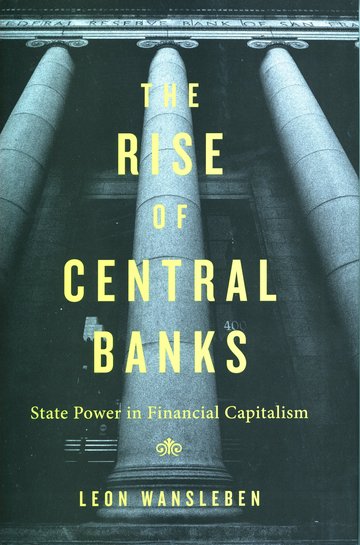The Political Economy of Collective Skill Formation
Marius R. Busemeyer, Christine Trampusch (eds.)
MPIfG Book
Abstract
The Political Economy of Collective Skill Formation examines the type of vocational training known as collective skill formation systems. These are often the firm-based apprenticeships that are collectively organized by business and unions and receive state support and cooperation in their implementation, funding, and monitoring.
This book is the first to comprehensively analyse the varying historical origins of vocational training systems and their recent developments. It has in-depth studies on vocational training in the coordinated market economies of Germany, Austria, Switzerland, the Netherlands, and Denmark.
Whereas previous research focused on the differences between the various types of skill regimes, this book explains the institutional variety within systems of collective skill formation. The development of such systems is regarded as a dynamic political process dependent on the outcome of a range of political struggles that include institutional design and transformation at critical junctures in history.
Contents
Introduction
1. The Comparative Political Economy of Collective Skill Formation
Marius R. Busemeyer and Christine Trampusch
Section I: Country Studies
2. Political Institutions and the Origins of Collective Skill Formation Systems
Cathie Jo Martin
3. Institutional Change in German Vocational Training: From Collectivism towards Segmentalism
Kathleen Thelen and Marius R. Busemeyer
4. The Long Road to Collective Skill Formation in the Netherlands
Karen M. Anderson and Dennie Oude Nijhuis
5. Educational Policy Actors as Stakeholders in the Development of the Collective Skills System: The Case of Switzerland
Philipp Gonon and Markus Maurer
6. Austrian Corporatism and Institutional Change in the Relationship between Apprenticeship Training and School-Based VET
Lukas Graf, Lorenz Lassnigg, and Justin Powell
7. Continued Collectivism: The Role of Trade Self-Management and the Social Democratic Party in Danish Vocational Education and Training
Moira Nelson
Section II: Crosscutting Topics and Contemporary Challenges
8. Collective Skill Systems, Wage Bargaining, and Labor Market Stratification
Marius R. Busemeyer and Torben Iversen
9. The Link between Vocational Training and Higher Education in Switzerland, Austria, and Germany
Rita Nikolai and Christian Ebner
10. Gendered Consequences of Vocational Training
Margarita Estévez-Abe
11. Europeanization and the Varying Responses in Collective Skill Systems
Justin J.W. Powell and Christine Trampusch
Concluding Essay
12. Skills and Politics: General and Specific
Wolfgang Streeck
Editors
Marius R. Busemeyer
Christine Trampusch
Reviews
"This volume is the major publication in the vocational training literature since Thelen's seminal How Institutions Evolve. Studies of the main 'collective actor' systems - Germany, Switzerland, Austria, Denmark, and the Netherlands - bring the reader right up-to-date while also showing the historical evolution of the systems. In a most impressive introductory chapter, Busemeyer and Trampusch build an analytic political economic model to account for the different patterns of skill formation systems in the advanced world. And in sparkling country and comparative chapters (including by Iversen, Martin, Streeck, and Thelen) the book integrates a depth of empirical knowledge with sophisticated modern political economy. This book is a formidable achievement."
David Soskice, Research Professor of Political Science, Duke University, and Research Professor of Comparative Political Economy, Oxford University
"The contributions to this volume cover the waterfront on contemporary issues of skill formation and the politics to which it gives rise in the coordinated economies of Europe. They range from history to current challenges to debates on the concepts we use to understand skills and skill systems. Germany continues to cast a long shadow in these discussions, but this volume enriches the debate by widening it beyond the canonical German case. The editors have pulled together the contributors without losing sight of their divergent analytical contributions. A genuinely comparative volume likely to be of great use to both established scholars and new students of the political economy of skills."
Pepper D. Culpepper, Professor of Political Science, European University Institute, Italy
"In an era of revived political and societal interest for vocational education and similar systems of formation around the globe, the understanding of the history, the foundations, and the institutional subtleties and differences has become the key to understand the functions and dysfunctions of systems of collective skill formation. In this respect this book fills important gaps in the current knowledge and provides an excellent overview of the existing literature. Therefore I can only praise it as the indispensable source and base for more scholarly work on the political economy of collective skills formation in the future!"
Stefan C. Wolter, Professor of Educational Economics, University of Bern












